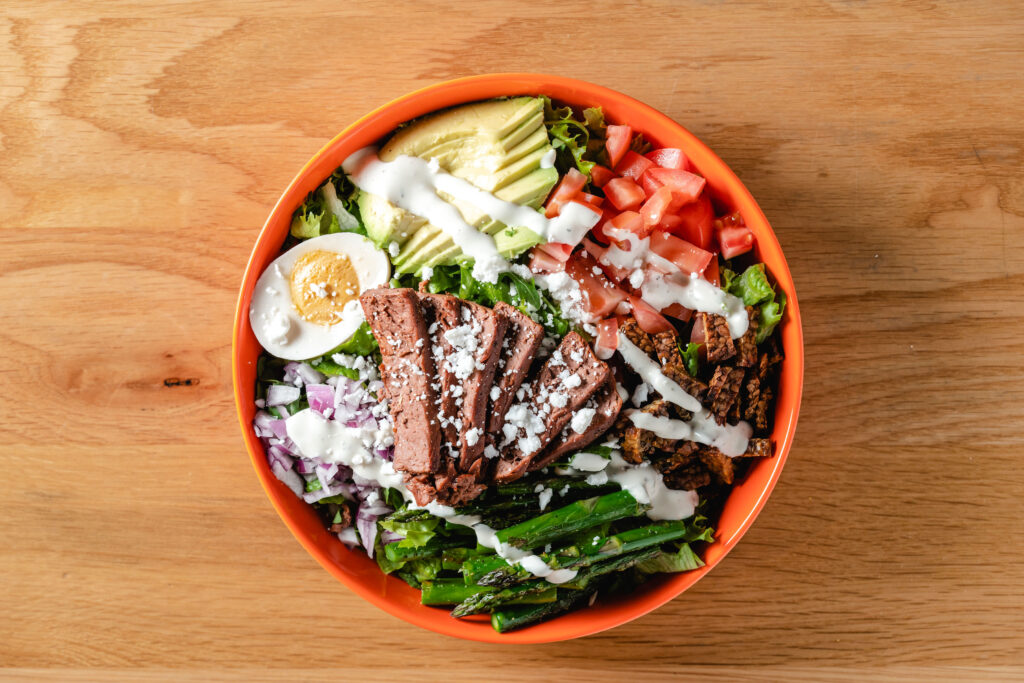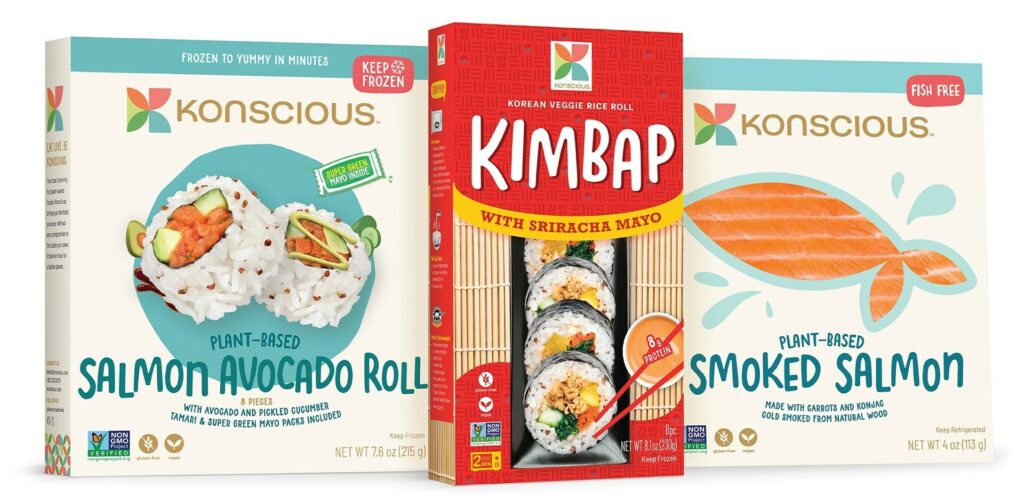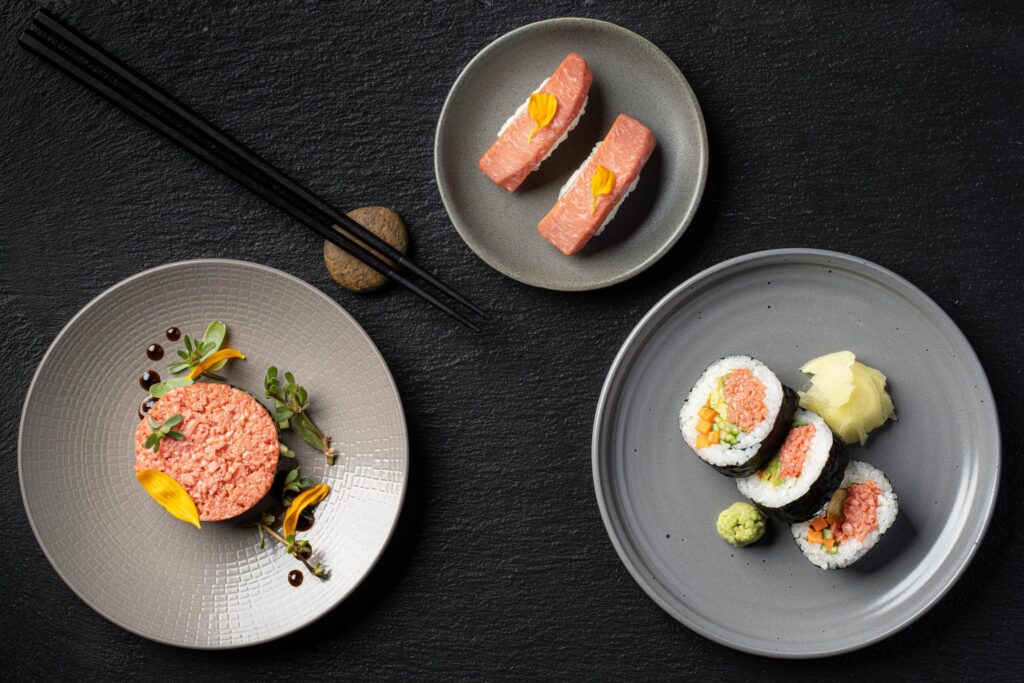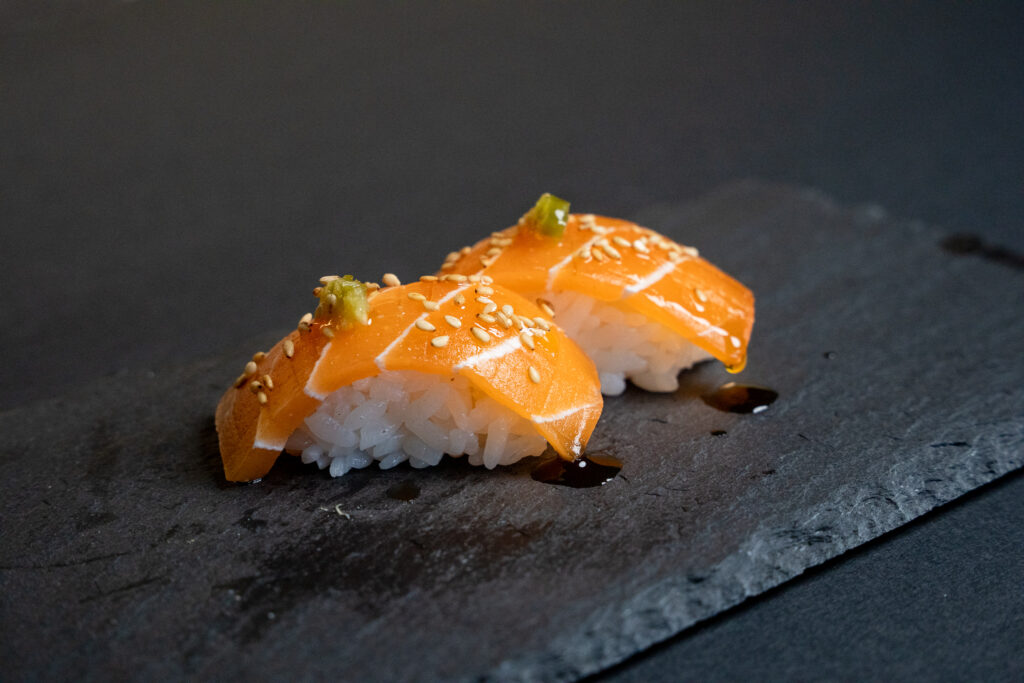Future Food Quick Bites: Vegan Goat Milk, US State Bans & A Chipotle Exposé
7 Mins Read
In our weekly column, we round up the latest news and developments in the alternative protein and sustainable food industry. This week, Future Food Quick Bites covers Craig’s Vegan’s link-up with TikToker Tinx, a host of alternative protein bans in US states, and a vegan 30 Under 30 recognition.
New products and launches
Californian non-dairy ice cream brand Craig’s Vegan has partnered with TikTok influencer Christina Najjar (aka Tinx) for a limited-time The Tinx Sundae, which features a cashew-based vanilla ice cream topped with brownies, chocolate swirls, and rainbow sprinkles.

British alt-milk producer Rude Health has introduced an organic version of its barista oat milk, which has been in development for four years. The four-ingredient milk will retail at £2.40 in independent stores and online, beginning March 11.
In the US, alt-milk company Elmhurst 1925 has released four Multi-Serve Latte SKUs in Pistachio Crème, Maple Walnut, Caramel Cashew and Brown Sugar Oat flavours. They’re available online and will roll out in Sprouts locations this March, with a Toasted Vanilla Almond variant set to launch in the spring.
Chinese food company MìLà is gearing up for a limited-edition run of its vegan jackfruit-based soup dumplings in the US, with pre-orders starting March 22 and lasting for about a month.
Meanwhile, Next Level Burger and its now-subsidiary Veggie Grill have unveiled new limited-time menu offerings for March. The former has a mint-choc-chip-flavoured Lucky Leprechaun Shake, while the latter has a chocolate-flavoured Lucky Leprechaun Velvet Cake. Both have also launched a Spring Steak Salad, and the three items will be available from March 8 through to the end of the month.

New York-based Beekman 1802, a personal care brand championing goat milk as its base ingredient, has reverse-engineered its products to unveil plant-based alternatives to its range, with a new vegan gel cleanser, toner and moisturiser.
Aussie cleaning brand Wash Wild has launched a line of plant-based household cleaning and body care products – including laundry and dishwashing liquids, toilet cleaner and hand wash – which are formulated with over 99% non-toxic, biodegradable ingredients.
For vegan Greek yoghurt fans, Hong Kong-based soy milk brand Vitasoy has introduced a lemon-flavoured version in Australia, which is available at Woolworths for AU$1.35 per 140g pack.
Hong Kong-based OmniFoods has launched two new ready-to-eat products using its plant-based pork in 7-Eleven stores across the city.
Japanese convenience store chain Family Mart, meanwhile, has rolled out two dishes with Dutch startup The Vegetarian Butcher‘s vegan chicken chunks. They’re available in 2,800 Family Mart stores in Tokyo.
Also in Japan, Azuma Foods has launched a new raw vegan seafood range under its Green Surf brand, which features tuna, salmon and squid made from konjac.
Fellow Dutch plant-based meat producer PLNT (a subsidiary of Jan Zandbergen) will showcase vegan lamb strops and chicken sausages made from pea, wheat and soy protein at trade show Alimentaria in Barcelona (March 18-24).

Canadian vegan seafood maker Konscious Foods will unveil three new products – Smoked Salmon, Kimbap Korean Veggie Rice Roll, and Salmon Avocado Roll – at Expo West (March 12-16) in Anaheim, California.
And back in the US, plant-based industry veterans have launched the Earth Pass, a text-based service that delivers weekly discounts from planet-friendly brands across food, fashion, wellness and beauty.
Policy and awards
Two UK school caterers have won the inaugural national ProVeg School Plates Awards for climate-friendly menus. Waltham Forest Catering, which services 43 institutions, took the honour for public schools, while Plant Based School Kitchens won in the private school category for its menu at Our Lady of Sion school in Worthing.
In Ohio, Kent State University has pledged to serve 30% vegan meals in both its residential and retail operations by 2026, in collaboration with the Humane Society’s Forward Food programme, which will train the school’s culinary team this semester.
Meanwhile, as part of the same programme, half of all campus meals at the University of Texas are now plant-based, a year ahead of the 2025 goal.
The University of Arkansas is hiring a senior research scientist to help launch an alternative protein centre of excellence, with the facility expected to facilitate pilot-level cultivated meat production and host emerging startups looking for space to build out their tech.

US producer BlueNalu has become the first cultivated seafood company to join the National Fisheries Institute. It will also serve as a founding member of its inaugural Sushi Council.
The West Virginia House has passed a bill that requires vegan, fungi-based and cultivated meat products to be labelled with one of multiple terms, including ‘imitation’, ‘analogue’, ‘meatless’ or ‘plant-based’.
Similarly, the senate in Iowa has passed a bill mandating plant-based and cultivated meat products to carry labels like ‘meatless’ and ‘imitation’ as well.
Florida’s senate has voted to approve a bill that would ban the sale and production of cultivated meat in the state, which will now go to the House for deliberation. Governor Ron DeSantis has been staunch in his support for the ban.
Over in Europe, France has officially banned the use of meat-like terms on plant-based products, including ‘cutlets’, ‘bacon’, ‘sausage’ and ‘steaks’.
In Denmark, meanwhile, meat processor Danish Crown was found in violation of consumer marketing law by the Danish Western High Court, which ruled that its ‘climate-controlled’ pork was misleading. The suit was filed by the Danish Climate Movement and the Vegetarian Society of Denmark.

Hungarian vegan activist Raul Vida, meanwhile, has become the first plant-based advocate to appear on the country’s Forbes 30 Under 30 list.
In the US, TIME Magazine and Statista have named mycelium protein producer The Better Meat Co as one of the country’s Top GreenTech companies in their inaugural ranking.
Finance, business and research developments
British cocoa-free chocolate producer WNWN Food Labs has refreshed its B2B and trade branding to Win-Win, with the new logo and packaging a nod to its mission of creating a “win-win situation for cocoa farmers, food producers, consumers, and the planet”.
After pulling out of the UK market last year, Nestlé has discontinued its pea milk brand Wunda, with its products withdrawn from the Netherlands and its website shut.
San Antonio-based vegan eatery Plantology has launched a GoFundMe crowdfunding campaign to save the restaurant from closure, with a target of $80,000.
In Los Angeles, plant-based omakase restaurant Kusaki has reopened after a four-month hiatus with a new Kaiseki-influenced menu, featuring dishes like Maitake Wontons, Watermelon Granita Nigiri, and Crispy Garlic Tuna Sashimi.

The Canadian government’s alternative-protein-focused innovation hub Protein Industries Canada has invested C$7.3M ($5.4M) to help Avena Foods create plant-based ingredients. The C$19.2M ($14.2M) project will see the oat producer develop oat and pulse ingredients for Big Mountain Foods, Danone Canada and Old Dutch.
In Catalonia, the government is investing €12M in a facility located in Alcarràs, Lleida that will help companies with R&D and pre-industrial manufacturing of alt-protein ingredients.
In more funding news, Australia’s Food and Beverage Accelerator and the Queensland University of Technology are injecting AU$3.9M ($2.6M) to transform its renewable biocommodities plant into a precision fermentation facility.
San Francisco-based vegan dog food brand PawCo has raised $2M in a seed funding round, which it will use to open a second production facility in the midwest, expand R&D efforts, and develop new recipes and marketing tactics.
Biotech startup Van Heron Labs, which leverages advanced tech like genomics, bioinformatics, artificial intelligence and nanotechnology to improve how cells are cultured and harnessed, has closed a $1.1M seed funding round led by FoodLabs.
Mercy for Animals has unveiled a new Chipotle Exposed investigative campaign to highlight animal cruelty at one of the fast-casual chain’s chicken suppliers.
Finally, a new study by the University of Exeter and meat-free giant Quorn has revealed that swapping animal protein for mycoprotein products can reduce LDL cholesterol by 10%, and total ‘bad’ cholesterol by 6%.
Check out last week’s Future Food Quick Bites.



